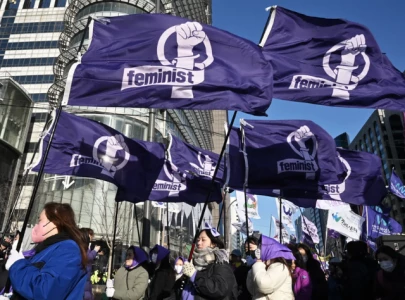
Proxy violence across Pakistan is on the rise again. In the first nine months of 2022, mostly TTP-related terrorists carried out 274 attacks, leaving at least 455 dead. This comes to almost an attack a day. Security forces also continued their push against terrorists, with nearly 100 operations leaving 262 dead, mostly suspected terrorists, according to the Center for Research and Security Studies.
Dozens of security personnel also lost their lives in targeted attacks and operations. In latest incidents, seven terrorists were killed in a single day (Oct 4) in Tank and Peshawar districts of K-P while two soldiers were martyred. Two days earlier, Sindh Counter-Terrorism Department (CTD) claimed killing a pair of militants affiliated with IS-K in the Janjaal Goth suburb of Karachi. Interestingly, the same day, the TTP had already owned the two terrorists through a press release dated Oct 2. Omar Khalid Khorasani, the spokesperson, said they embraced “shahadat after valiantly participating in various activities during the jihad e Pakistan”.
Fatalities from terrorist violence numbered 600 in 2021, while largely terrorist attacks claimed 335 lives in 207 incidents — an increase of over 50% from those killed in such attacks in 2020. Much of the violence and targeted attacks on security forces is attributed to or claimed by TTP, Hafiz Gul Bahadur Group (North Waziristan), IS-K and a few Baloch and Sindhi nationalist insurgent groups. The latest surge in targeted violence comes on the heels of the talks with the TTP that actually began in April 2021 when Afghan Taliban chief Haibatullah Akhunzada — on Pakistan’s request — constituted a mission to nudge the TTP into peace talks.
The dialogue process was halted with the Taliban taking over Afghanistan in August, only to resume early this year. It never got anywhere as most TTP leaders, including their emir Noor Wali Mehsud, had been ensconced in comfort zones in Kabul provided by Afghan Taliban. Talks with Pakistan’s official delegation and with a number of religious scholars, facilitated by Sirajuddin Haqqani, have also confirmed TTP militants have been enjoying the Taliban shelter in Kabul. A few issues stand out in the latest scenario.
Firstly, a clear nexus exists between TTP and other terror franchises such as IS-K, Daesh, Jundullah, Hafiz Gul Bahadur Group and Ahrarul Hind. They all are bound by the Deobandi/ Salafi school of thought, avowedly antiWest and anti-Shia. Secondly, TTP has also partnered up with the Baloch Nationalist Army, cobbled together in November last year. The suicide attack on Chinese citizens outside Karachi University and the Anarkali terror strike in Lahore bore TTP footprints. Their mission statement also sounded similar to that of TTP, with army being their prime target.
Thirdly, realisation in Kabul that they can’t run with the hare and hunt with the hound if they want to normalise ties at least with their immediate neighbours. Pakistan should be happy that after initial reluctance, the Taliban finally announced that anyone found using Afghan soil for terrorism in Pakistan will be tried for sedition. Thus far they had refrained from calling out groups like TTP, ETIM or IMU. Thus a quiet cooperation between Pakistan and Afghanistan required for taking out know terrorists cannot be ruled out.
One wonders if Omar Khalid Khorasani and a few other TTP terrorists also fell because of a rethink in Kabul Fourthly, the systematic violent campaign against security forces in border regions of K-P and Balochistan suggests space for ideologically-inspired seminaries continues to shrink. Space for open extremist narratives and militant activities in mainland Pakistan has also contracted, largely due to strict FATF conditionalities since June 2018. However, we must not confuse this with the omnipresent religiosity in the length and breadth of Pakistan.
People at large are religious but the appetite for extremist ideologies in the new political scenario may not be as strong as it used to be. Lastly, almost all proxy terror franchises share one objective: continue destabilisation campaign and keep security forces on tenterhooks. This entails a picture of a volatile country not worth foreign investment








1729685382-0/Untitled-design-(57)1729685382-0-270x192.webp)




COMMENTS (2)
Comments are moderated and generally will be posted if they are on-topic and not abusive.
For more information, please see our Comments FAQ